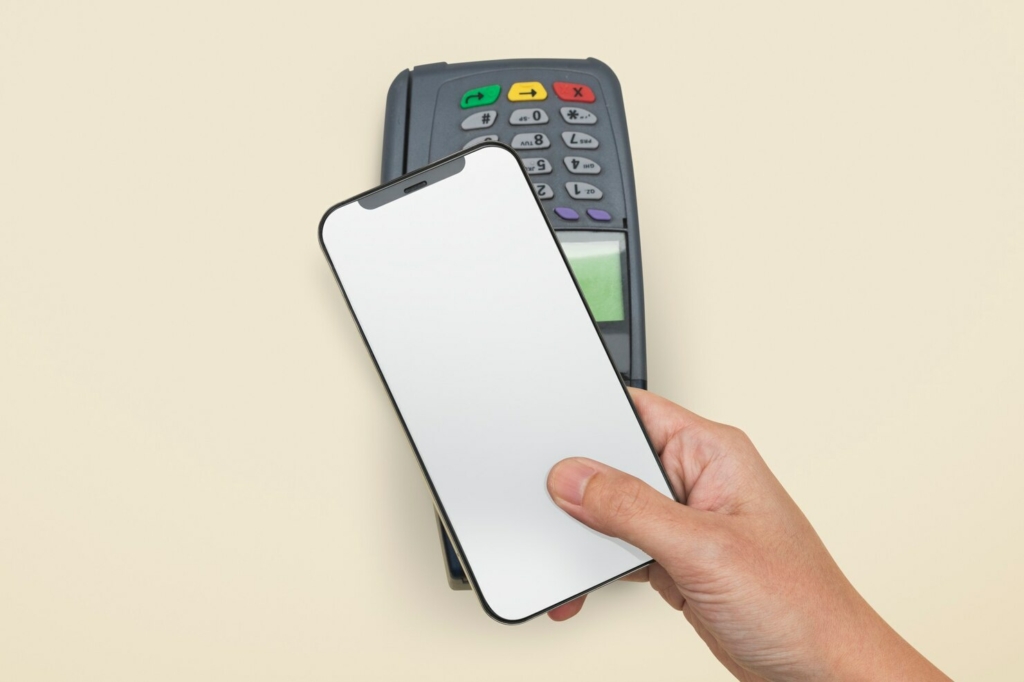Imagine waking up in a world where every purchase, every transaction, and every financial choice you make is monitored and controlled.
Your access to funds gets restricted not because you lack money, but because your beliefs or actions don’t align with the powers in charge.
This is one potential cashless future. But there are others.
The Current Trend Toward Cashlessness
We all see it coming. The end of physical cash seems inevitable. But the dangers of going cashless are very real.
To navigate this transition safely, we must address the risks. And soon.
The movement away from physical cash is more than a trend; it’s a seismic shift in how economies operate. Contactless payments, digital wallets, and online shopping have become staples of modern life.
Governments and central banks want to accelerate this shift with the development of Central Bank Digital Currencies (CBDCs). They promise these digital currencies, managed and controlled by them, will modernize monetary systems, increase transaction efficiency, and reduce illicit activities (like tax evasion).

Sweden is leading the charge. The country has moved so far toward cashlessness that many shops and businesses no longer accept physical money. While this creates efficiency, it also raises significant concerns about trust.
Risks of a Cashless Society
While a cashless world promises convenience, it also comes with serious trade-offs:
Privacy Violations
Most digital transactions leave a permanent trail. Every purchase, transfer, or donation becomes a data point in a larger surveillance ecosystem. Without cash, anonymity disappears, leaving citizens vulnerable to exploitation by corporations, governments, or hackers.
Financial Censorship
Consider events like Canada’s trucker protests, where authorities froze protestors’ bank accounts without due process. In a fully digital economy, such actions become even easier and more widespread. Imagine losing access to your funds simply because you supported the “wrong” political party or expressed dissenting views.
Technological Vulnerabilities
Cash doesn’t rely on electricity or the internet. Digital systems do. A cyberattack, system outage, or even a natural disaster could paralyze financial networks, leaving people unable to access their money when they need it most.
Safeguarding Privacy and Autonomy
The rise of a cashless society doesn’t have to spell the end of privacy and financial freedom. Decentralized technologies, built on the ethos of personal sovereignty, offer powerful tools to counter these risks.
The Cypherpunk Vision
The cypherpunks—early advocates of digital privacy—anticipated a world where centralized systems could erode individual freedoms.
Their efforts eventually gave birth to Bitcoin, the first decentralized digital currency to really take hold, which operates without intermediaries and ensures censorship resistance through its blockchain technology.
Despite the threat of arrest by federal agents, the cypherpunks continued to develop and release “classified” encryption software to prevent the government from spying on every citizen in violation of our natural right to privacy.

Despite the Biden administration’s crackdown on privacy cryptos, and regardless of the stance of future administrations, we must continue to use coins like Monero, as an act of civil disobedience if necessary, to safeguard against the very real threats CBDCs represent in a cashless world.
The Power of Self-Custody
In a cashless world, holding your private keys becomes essential. Private keys are the foundation of self-custody, allowing you to control your assets without relying on banks or third parties. Hardware wallets and cold storage solutions offer a secure way to keep your crypto safe.
Alternative Financial Tools
- Censorship-resistant Cryptocurrencies: Bitcoin provides a transparent, decentralized option for secure transactions. Monero offers enhanced privacy features, ensuring anonymity in a way no CBDC can match.
- Decentralized Finance (DeFi): Platforms like Aave and Uniswap allow peer-to-peer financial transactions without intermediaries, offering an open, global alternative to centralized banks.
- Tokenized Microtransactions: Blockchain technology enables microtransactions, empowering individuals to monetize their data while retaining ownership.
The Path Forward
To ensure a wise transition to a cashless society, we must take proactive steps:
Demand Privacy Protections
Policymakers must prioritize privacy for citizens, and demand transparency into the code and ledger of any CBDC. Without these safeguards, the risks of abuse become too great.

Foster Decentralized Innovation
Decentralized payment solutions like Bitcoin, and privacy coins like Monero should be encouraged as counterbalances to centralized systems. Supporting open-source development ensures no single entity controls the future of money.
Educate and Empower
Consumers must become financially literate in decentralized tools. Learning to use cryptocurrencies and understanding the importance of self-custody are critical steps to protecting one’s financial freedom.
Conclusion
A cashless society promises unprecedented convenience, but convenience should never come at the cost of freedom. As we march toward this digital future, we must remember that financial privacy and autonomy are not luxuries—they are fundamental rights.



